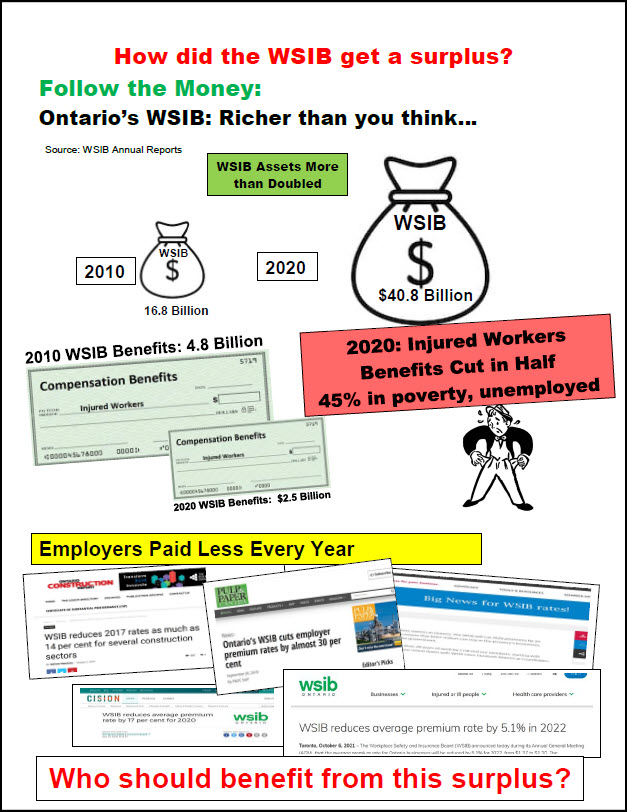A timeline of the changes to Ontario’s workers’ compensation benefits since 1915 reveals a story of progress and regression.
The major changes in 2014 to WSIB benefits policies and to more recently to appeals procedures have resulted in a “massive cutback to injured workers’ benefits, tantamount to a re-writing of the legislation” and undermined the Meredith principles on which Ontario’s workers’ compensation is based. The theme in the new benefit policies is to get decision makers to ‘look to deny’ by questioning work relatedness every step of the way. The new approach rejects the legal principles and tries to ‘medicalize’ the decision making process.
The increase in denied claims has forced many workers onto social assistance, while those with allowed claims are receiving lower average Loss of Earnings (LOE) payments and decreases in other benefits, including health and retraining services.

